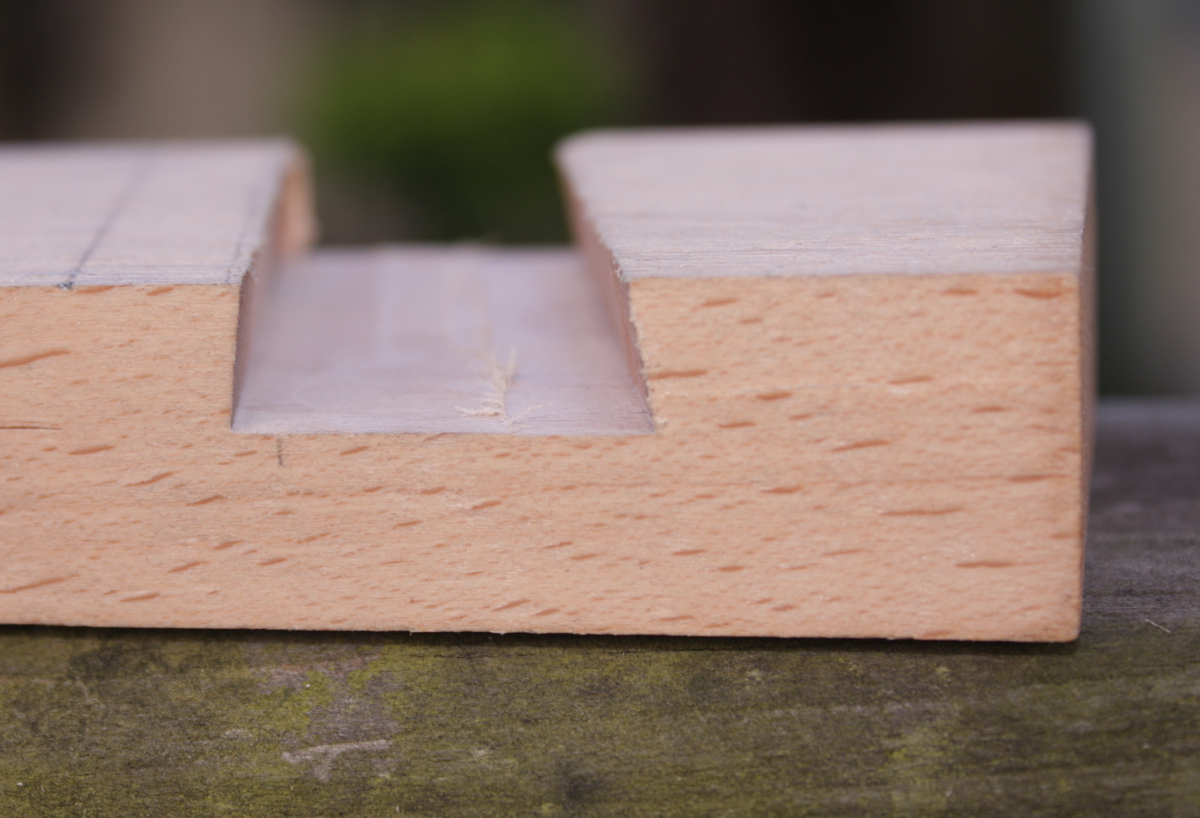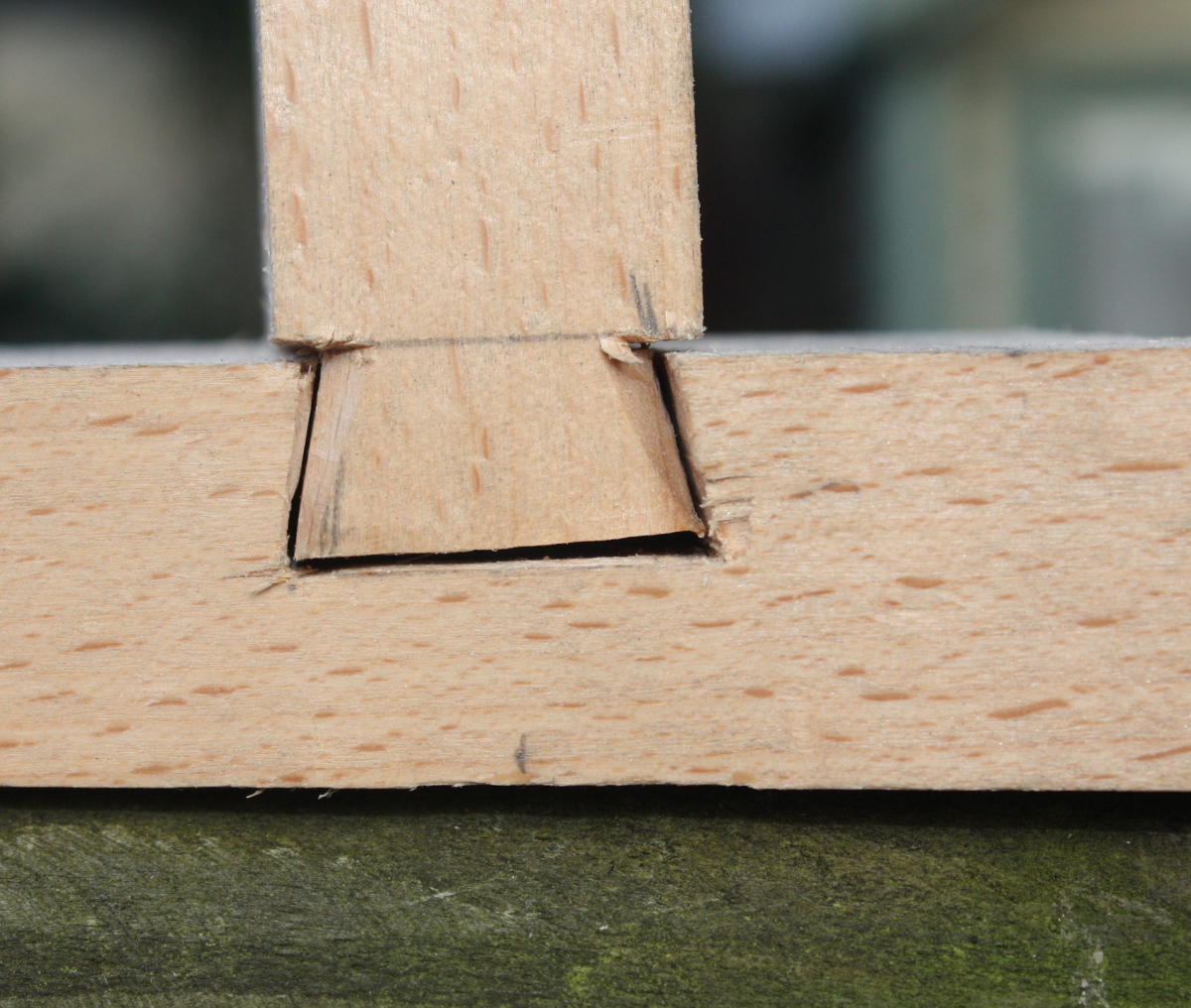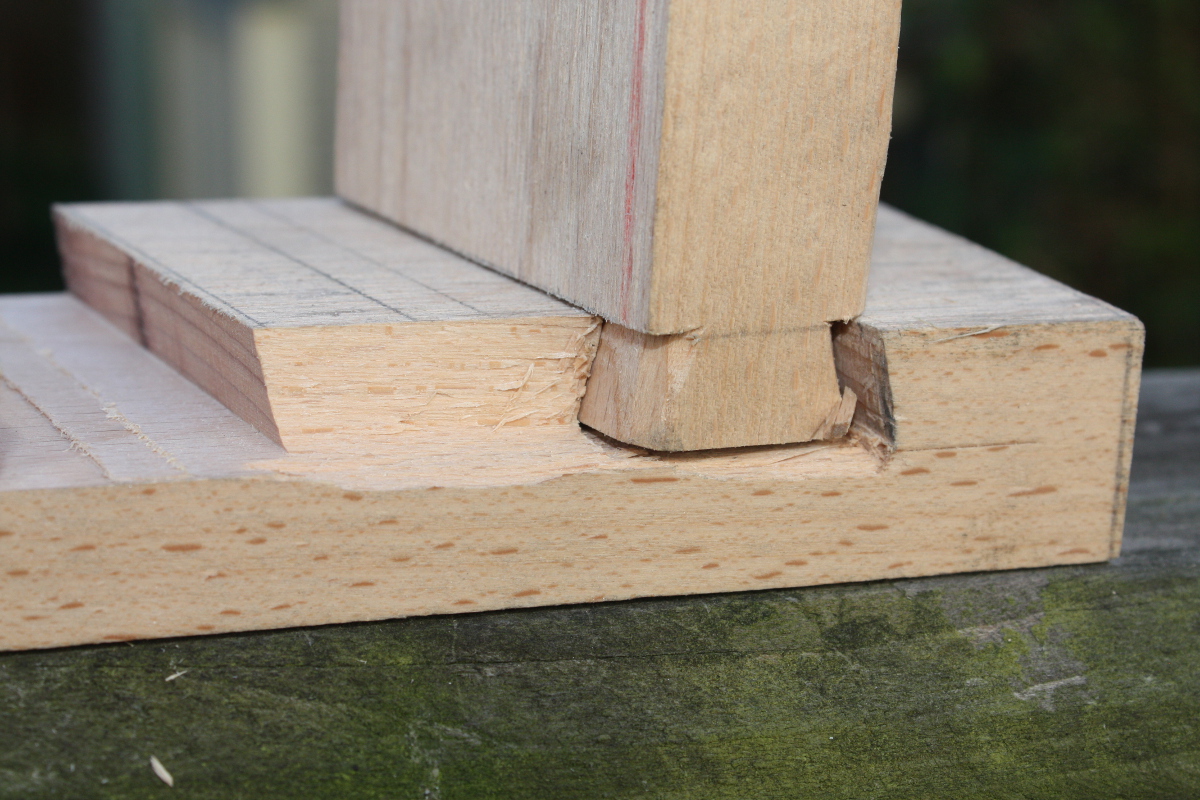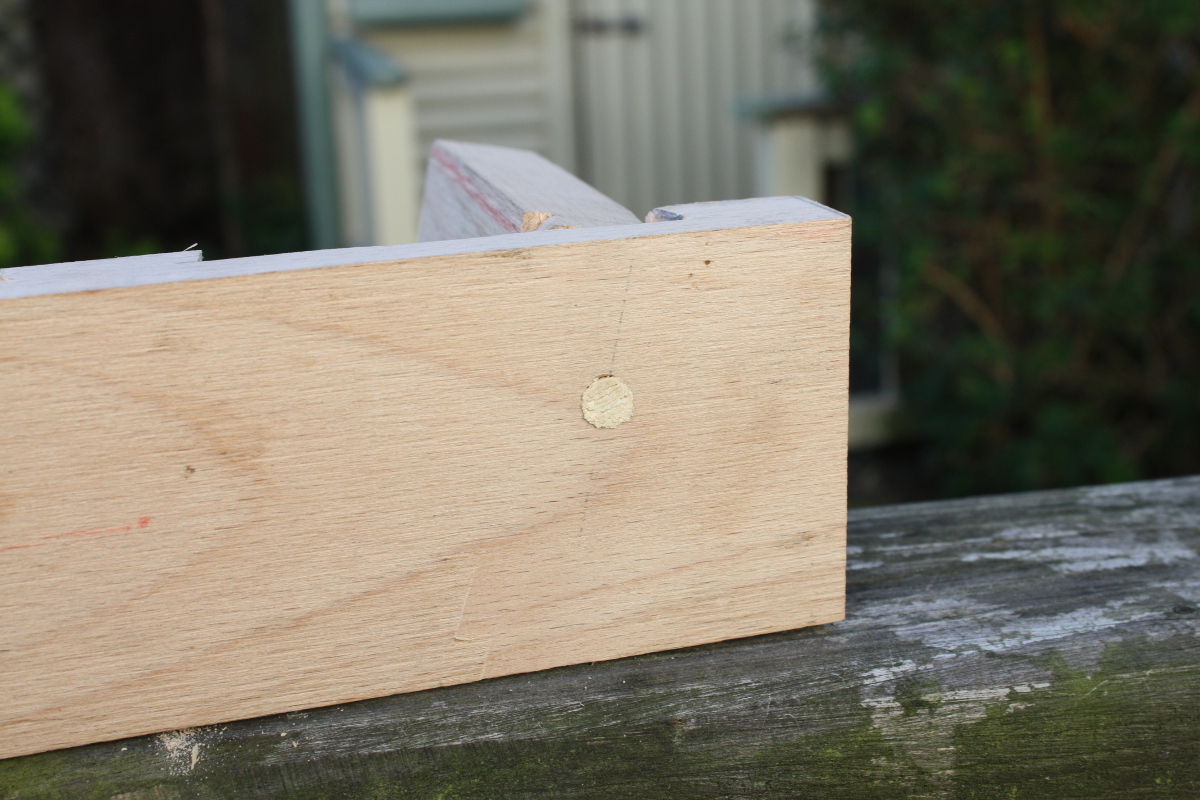So looking at the pieces of scrap I was practicing on yesterday, I see that the power-cut dovetail has a consistent angle but the edges are anything but sharp and there’s a problem with blowout:
While the hand-cut version is messier but holding:
A bit more practice would clean that up. It’s slower, but it leaves you with all your fingers, which is a plus. The back end broke out because of short grain:
But you can see that the gaps aren’t as bad at the back end due to the angle being inconsistent. There are a few different hand methods to cut the joint – I was paring the angles with a chisel but there are more accurate methods. I guess I’m doing some more practice for a while and the doing this by hand.
Also, you can secure the joint a lot with a peg…
That will forgive a bit of sloppiness. It’s not exactly drawboring, but it’s better than nothing. Also, if I do a stopped dovetail, then drive the shelves into the sides from the front, the joint is hidden on the back by the stop and on the front by the shelf being a bit wider than the sides, which makes shaping easier.
Tags: beech, hand tools, sliding dovetail, tools, Woodworking




